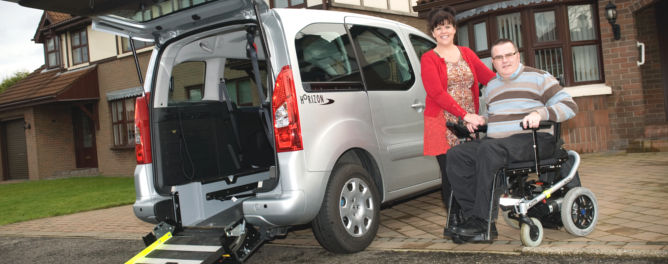Sarah Tether will have made few friends among some of her former Government colleagues by voting against the Welfare Benefits Uprating Bill – but she was courageous and right to do so. She was also right in saying that it is the politics of the playground to paint a picture of “scroungers versus strivers.”
She will know that it makes a mockery of claims that “we’re all in this together” to enact provisions which will lead to a couple with two children, earning £26,000 a year, losing more than £12 a week while 8,000 millionaires receive a tax cut worth an average of over £2,000 per week.
It’s neither fair nor just – nor equality of sacrifice – that, according to the Institute for Fiscal Studies, some 7 million working families will be an average of £165 a year poorer while another 2.5million, where no one is in work, will be £215 worse off.
This is all happening when there have been escalating inflationary increases in food, travel, fuel and heating costs; and comes on the back of changes in housing benefit regulations, the Welfare Reform Act 2012 and the Local Government Finance Act 2012.
But it is the plight of disabled people which should be making us truly angry.
Whist the exemption for Disability Living Allowance (DLA), Attendance Allowance and Carer’s Allowance is welcome, it beggars belief that disabled people are not protected from the 1% uprating – directly affecting around 1 million disabled people. One third of disabled people are living in poverty in the UK and the Government’s Bill will simply add to their impoverishment.
This systematic attack on disabled people is underlined by another tawdry measure which is rumbling its way through the system – and highlighted by Congleton’s admirable MP, Fiona Bruce, and by a coalition of disabled people’s organisations – the ‘Hardest Hit’ coalition, the Disability Benefits Consortium, and We Are Spartacus – a feisty group of disabled people with first hand experience of disability issues.
They say that the Disability Living Allowance will be replaced by a far less accessible new benefit – Personal Independence Payment (PIP), especially as it relates to mobility issues. DLA was designed to help meet the additional costs of living associated with being disabled – for extra care and support and for mobility.
The Government held two consultations on the qualifying criteria for PIP but as things stand Ministers might as well not have bothered. Far from improving the proposals they have actually made the situation worse.
In January, the Government predicted that 27% fewer working age people would be eligible for the Motability scheme once PIP was fully rolled out. The new proposals mean that 42% fewer disabled people of working age will be eligible – an average of 200 people in every constituency.
Disability campaigners from the We are Spartacus group have highlighted two changes with devastating consequences for sick and disabled people – changes which have shocked disabled people’s charities and left chronically sick and disabled people frightened and apprehensive.
First, the qualifying criteria for the ‘enhanced mobility rate’ has been changed from 50 metres to 20 metres. This is extremely restrictive with massive repercussions for the majority of disabled people, including “Motability” users. Some might be able to walk 20 metres but never-the-less have very significant difficulties in getting around.
So who exactly will be hit?
Disabled people with serious musculo-skeletal conditions, heart conditions or respiratory difficulties, cerebral palsy, neurological conditions such as MS and ME and many, many others will lose a vital life-line. Cars will simply be taken away while those who are unable to drive, and use their mobility allowance for other means of transport, will be without the where-with-all to fund privately owned cars, or taxis.
It’s sheer Janus-faced double-speak to tell disabled people to bring their gifts to society; to contribute by working, volunteering or being part of their community and then to take away their means of doing so.
And what will it all mean?
It will mean that previously mobile people will become prisoners of their homes. It will mean that they will be unable to get to work; to get to medical appointments; to visit family or friends or to go shopping or to visit amenities. It will mean that they will experience a significant reduction in their quality of life.
Put yourself in the place of someone who can walk 20 meters and will no longer qualify for Motability. How far will 20 meters get you, as you try to walk from the far end of a supermarket car park or to traverse the hospital or Council Offices car park to an entrance – or even walking from your car to your own front door? MPs should all be issued with a trundle wheel to see how far they would get with 20 meters of mobility.
Just a few days ago I spoke at a coffee morning at my university in Liverpool. Some of the bright people who were there had come using Motability. In the future events like this would simply be beyond their reach.
It is estimated that more than 100,000 people who were previously able to enjoy independent mobility and self-directed lives will end up staring at four walls – inevitably adding to loneliness and depression, the toxic condition of our age.
Added to this there is a second change which will have an even more adverse effect. The Government ‘s new Regulations fail to include the existing qualifying phrase – “reliably, repeatedly, safely and in a timely manner” – the criteria used to decide whether a person can carry out essential activities, like walking, bathing, cooking, and dressing and which will determine eligibility for the “Enhanced Mobility Component” of PIP.
The new formula downgrades the qualifying phrase to a reference in the guidelines to “reliability” alone and will no longer have the full force of law, spelt out in black and white. This will carry no weight at Appeals or Tribunals – rendering the reference in the Guidelines worthless.
The inclusion or exclusion of four little words, ‘safely’, ‘timely’, ‘repeatedly’ and ‘reliably’ will make a huge difference to those with fluctuating conditions such as M.S., Parkinson’s, M.E., Arthritis, Crohns Disease and Aids.
Leonard Cheshire Disability say “We would have preferred the greater certainty offered by the inclusion of “reliably” in the regulations.” Action for ME says that “Without these terms the threshold for entitlement is moved to such a high level it alters the entire benefit, and far fewer people would qualify for it.” Parkinson’s UK say “This is one of those areas where the language of the criteria is ambiguous. Reliably is said to mean “to a reasonable standard”. There is no definition of what this means leaving it open for individuals and decision makers to interpret matters very differently.” The MS Society say that retaining the existing criteria “would give claimants enforceable rights to ensure that these terms are considered. This is particularly important for complex cases involving people with fluctuating conditions like MS.”
If these changes go ahead hundreds of thousands of disabled people, whose mobility is vital to their life and health, stand to lose virtually everything. Please write to the Prime Minister, to your MP or to a Peer asking that they think again – their details can be found at http://www.theyworkforyou.com/





